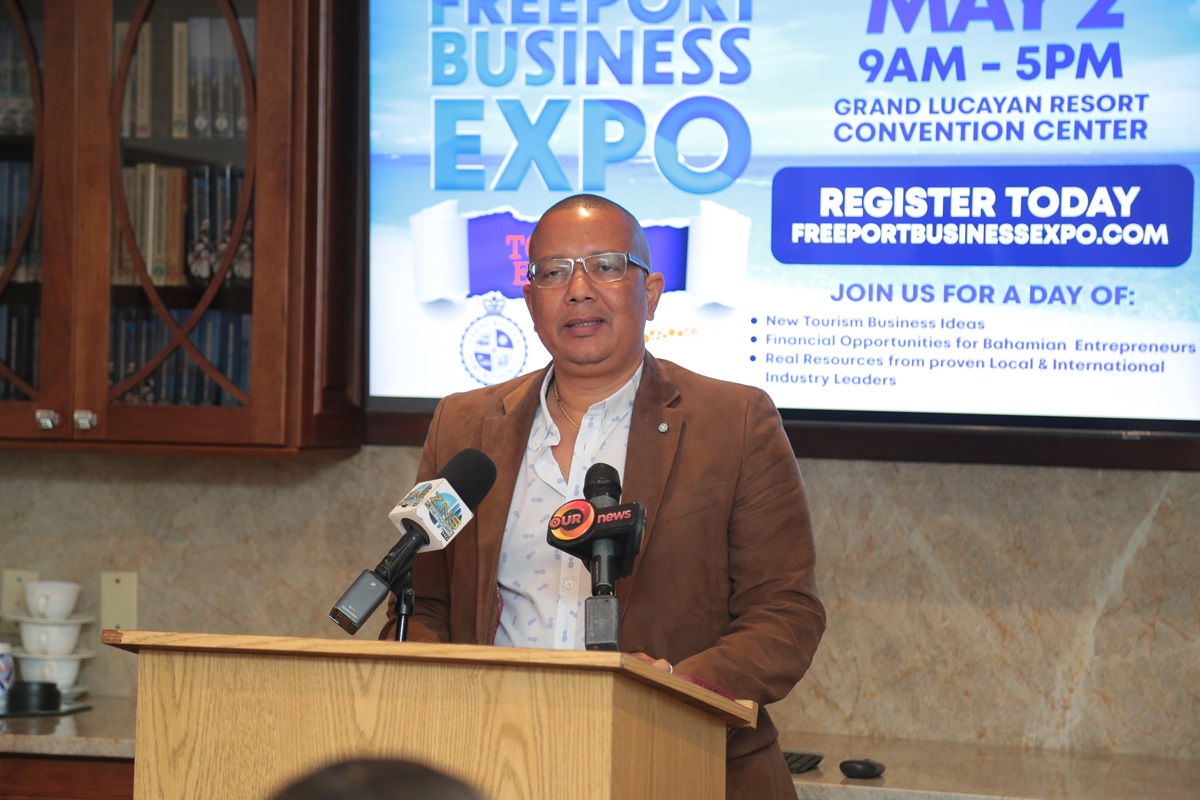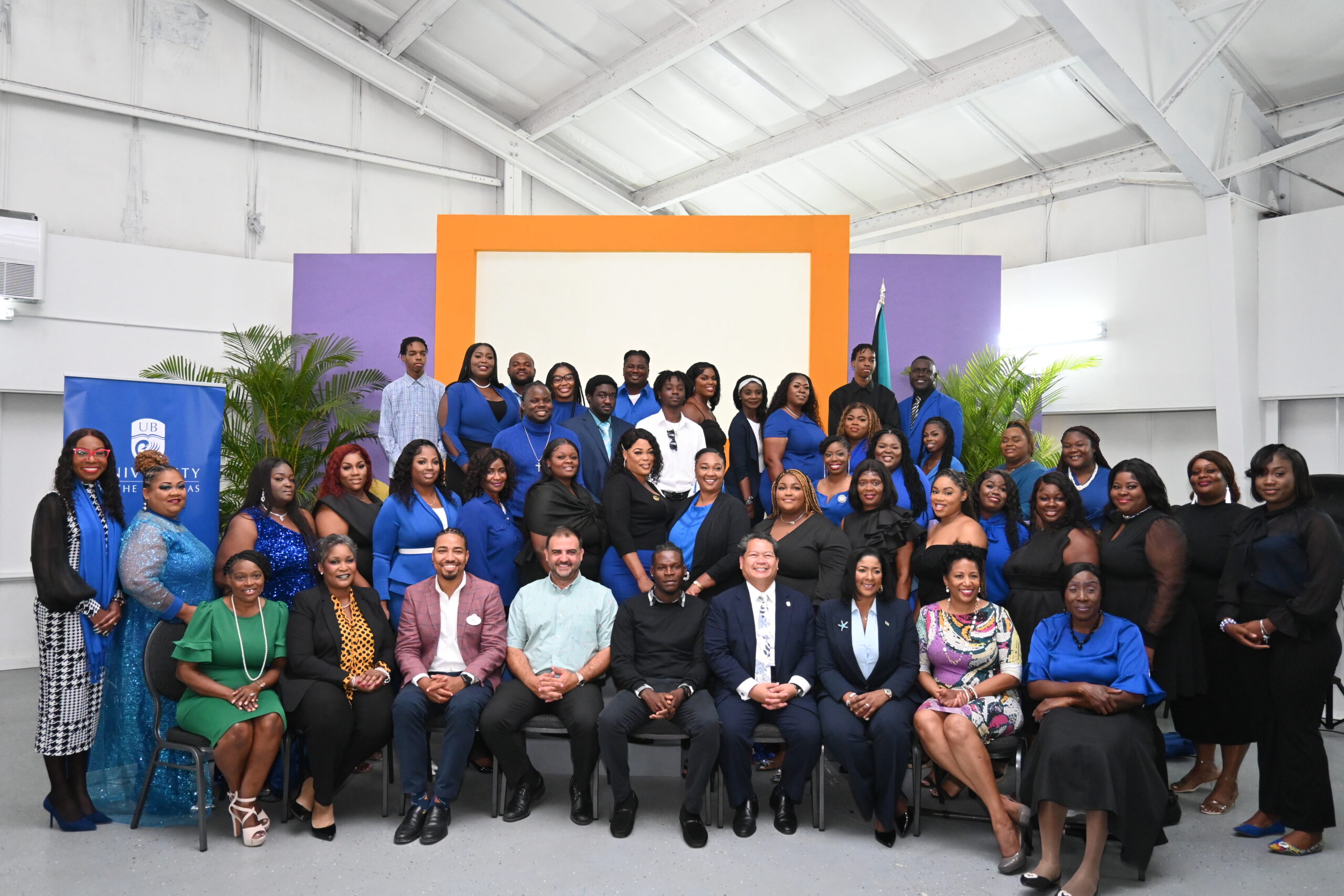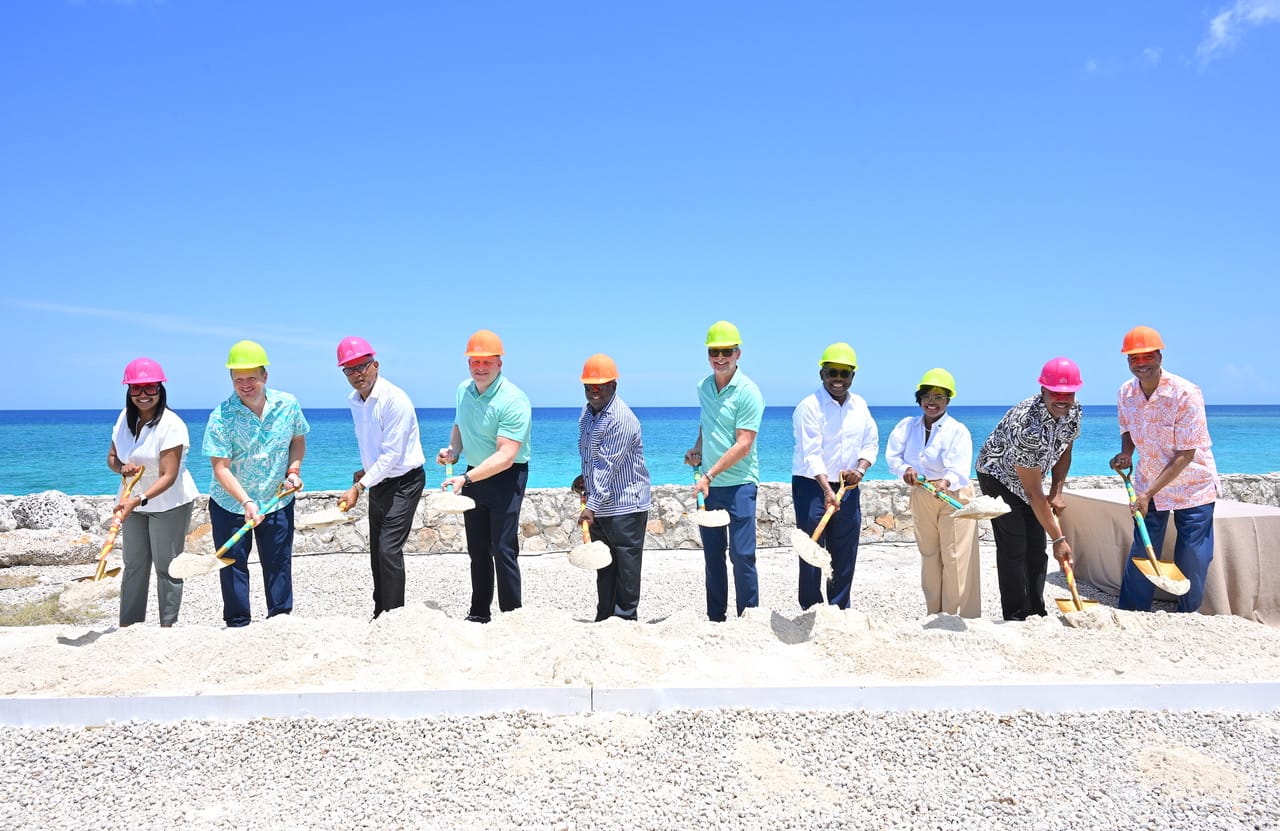FOR IMMEDIATE RELEASE
April 24, 2024
By LINDSAY THOMPSON
Bahamas Information Services
NASSAU, The Bahamas – The Government entered into a Heads of Agreement with Royal Caribbean International, followed by a Ground Breaking Ceremony for the construction of Royal Beach Club on Paradise Island, at an estimated $165 million.
The agreement was signed on Monday, April 22, 2024 during a press conference at the Office of the Prime Minister.

According to Deputy Prime Minister and Minister of Tourism, Investments and Aviation the Hon. Chester Cooper, the project will further enhance the tourism product, on the heels of an estimated 9 million visitor arrivals.
He deemed it “an eventful day” with a reliable partner in RCI of more than 50 years with The Bahamas, and the continued confidence that investors have in the tourism product and economy.

He said it is a partnership with “excellence experiences” as he delighted in the fact that there will be more for the 25,000 cruise ship guests in port.
Also on hand for the activities to seal the agreement were Prime Minister and Minister of Finance the Hon. Philip Davis; Minister of Health and Wellness, the Hon. Dr. Michael Darville; Minister of Energy and Transport, the Hon. JoBeth Coleby-Davis; Attorney General and Minister of Legal Affairs, Senator the Hon. Ryan Pinder; Director of Investments Phylicia Woods-Hanna; executives of Royal Caribbean International and Royal Caribbean Group, and other officials.
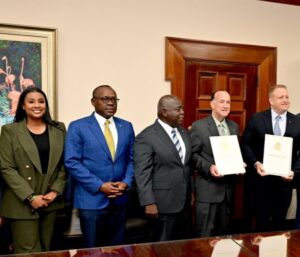
“With the signing of this Heads of Agreement for the development of the Royal Beach Club on Paradise Island, we embark on a $165 million project to further enhance the vitality of our tourism product,” the prime minister said.
Spearheaded by RBC Paradise Island Ltd. and PDI Paradise Ltd., subsidiaries of Royal Caribbean Cruises Ltd., the project will galvanize entertainment and recreational offerings for Bahamians and visitors alike.
The master plan for the Royal Beach Club includes pools, cabanas, and Bahamian boutiques, offering an unparalleled on-shore experience for visitors.
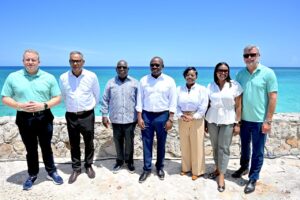
“This development will prove to be a monumental step forward for Bahamian inclusion in major tourism projects that will serve as a model for others to emulate,” the prime minister said.
The prime minister then underscored the importance of what the project would mean for Bahamians in the broader scope of things.
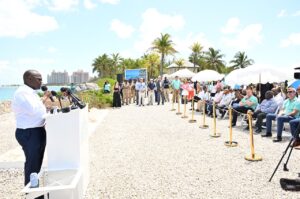
An estimated 200 jobs will be created for Bahamians. However, an opportunity is being provided for shared ownership in this development.
It is anticipated that PDI Paradise Ltd. will hold at least 51% of the shares in the Royal Beach Club, with the remaining 49 % shares being allocated to the National Investment Fund for the benefit of Bahamians.
“Through this partnership, we will provide new employment and economic opportunities for this nation. Local businesses will see their share of opportunities as well. There will be Bahamian boutiques creating avenues for small business ownership,” the prime minister said.
The project will also encompass a joint venture with a Bahamian-owned entity for the operation of a water taxi business; it will provide transportation options for guests of the Royal Beach Club, as well as other attractions in Nassau Harbour – enhancing accessibility while creating additional avenues for economic growth within the community.

“Ultimately, this project will largely be run by Bahamians, owned by the Bahamian people, and supported by Bahamian businesses.
“When we talk about the need to ensure that major tourism projects are primarily for the benefit of the Bahamian people, these are the kinds of opportunities that we are talking about,” the prime minister said.
He observed that the Royal Beach Club represents the latest successful chapter in the story of Paradise Island’s growth as a tourism mecca. Initial negotiations for the project began under the previous administration. Royal Club Beach is expected to open in 2025.
“By signing today’s agreement, we add another world-class experience to our tourism offerings. And even more importantly, we take a bold step toward greater Bahamian empowerment in the tourism industry. This is our nation, and we must ensure that, first and foremost, our service industries serve us,” the prime minister said.
He concluded, “We are more optimistic than ever before about our economic prospects with tourism leading the way as our number one industry that continues to grow at a record-breaking pace.
At the ground breaking site just west of the Atlantis Resort, officials tilled the soil, marking the beginning of the construction process.
Jason Liberty, president, and CEO of Royal Caribbean Group said that events regarding the agreement “symbolize partnership, momentum, and continued economic development for so many Bahamian entrepreneurs and the entire community.
“We are grateful to our partners for their support, especially the Bahamian government, who stand with us here today in celebration of what is to come.”


 TCI News1 week ago
TCI News1 week ago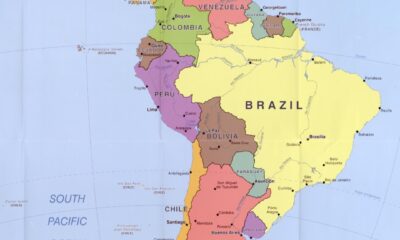
 Latin America and Caribbean1 week ago
Latin America and Caribbean1 week ago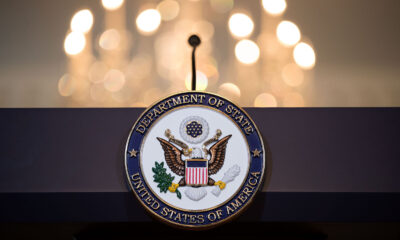
 Crime1 week ago
Crime1 week ago
 Bahamas News1 week ago
Bahamas News1 week ago
 Bahamas News6 days ago
Bahamas News6 days ago
 Caribbean News1 week ago
Caribbean News1 week ago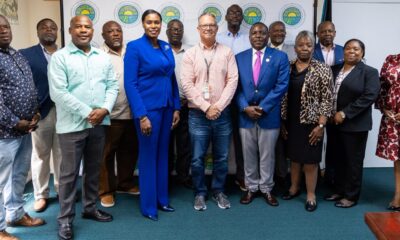
 Bahamas News6 days ago
Bahamas News6 days ago
 Caribbean News1 week ago
Caribbean News1 week ago




